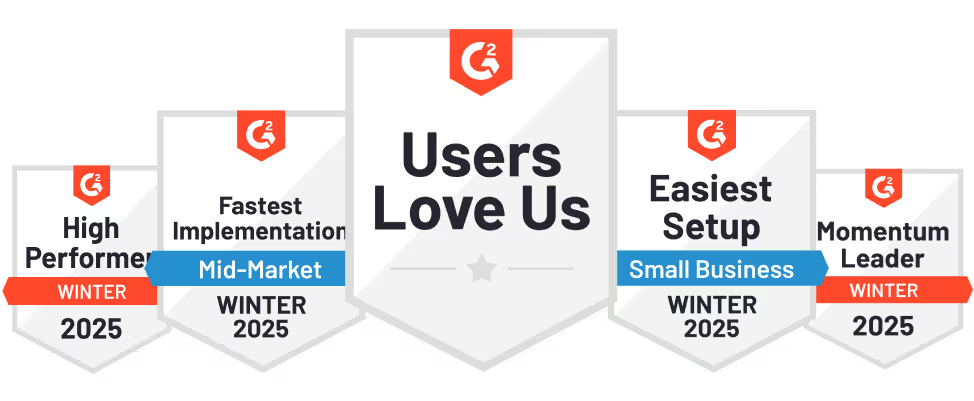B2B Marketing Attribution (or B2B Revenue Attribution) empowers demand gen teams to map out their customer journeys and connect the dots between marketing and revenue. At a high level, attribution weaves the story that your marketing data is trying to tell about the influence of each touchpoint on core business objectives. As multitouch attribution technology improves, B2B attribution is becoming an increasingly powerful tool for CMOs to wield. Here are 5 way in which CMOs and marketing leaders can take advantage of B2B marketing attribution.
1. A Bird’s Eye View Of Marketing Efforts
B2B marketing attribution empowers marketers to capture nearly every touchpoint across the customer journey. This is valuable information as most B2B buyers are already halfway through the sales cycle before they explicitly engage with a sales rep.
Your customers have likely interacted with plenty of marketing channels and content before being picked up by the sales team. Moreover, many of these customers become high intent buyers even before sales or marketing identifies them as such. In such a case, it becomes important to know:
- Which touchpoints help them make their decisions
- What content or marketing activity influences them to further pursue a product or engage with your company
- What content helps users narrow down your product over your competitors
- At which touchpoint do customer generate buyer intent,
- At what touchpoint do customers lose this intent
This helps CMOs understand user journeys as well as the efficiency of various marketing efforts in influencing customer decisions. It gives insight into the precise point in the funnel during which to target customers and optimize conversion rates, which campaigns to allocate budget to, which touchpoints are weak links in the buyer journey, and more.
2. Achievable Targets
Marketing attribution, being the data-driven technique that it is, helps CMOs undertake goals in terms of achievability and feasibility. More importantly, attribution uses metrics that can be used to track the progress as well as the success of various campaigns across various channels. This also helps in planning larger goals as well as yearly sub-goals with forecasting, tracking and analysis of campaigns and their impact on revenue. Such goal-setting is not vague as it is thoroughly backed by data.
3. Improve Productivity and Alignment Across Demand Gen
As your business grows and your marketing campaigns and sales processes start to scale, it can be challenging to track which campaign brought in which leads. Sales and marketing activities tend to become more siloed and communication gaps between the two teams can widen. This can lead to a lot of inefficiencies in the handing over of leads from marketing to sales. Marketing may have insights on which touchpoints impacted most positively to a certain lead that can help sales reps during their engagement. Conversely, sales reps may have insights through their engagements on what information or campaign content helped customers make their buying decision. CMOs can use marketing attribution to align the processes of these teams and improve the productivity of each campaign and each SDR by unifying customer journey reports and touchpoints onto one platform.
4. Accountability and Reporting
With attribution, marketing leaders can easily generate reports of the most important metrics for their business and board. Moreover, it’s convenient for CMOs to track the performances of their various teams and understand the contributions of each team on conversions, pipeline, and revenue. For example, if a certain blog posts incurs recurring URLs for all leads that have converted, then it is a good idea to give more resources to the content team and perhaps even hire more writers. Attribution gives you hard data on metrics like website traffic and what pages they visited and how much time they spent, whether they filled a form or if they left without any activity, whether they clicked on a discount code or a free whitepaper or if they were not able to notice it — this can give a CMO a good idea on the interface and content of the website. In essence, attribution helps you hold each team accountable by getting a data-backed view of their performances.
5. Driving Growth
Marketing attribution recognizes trends and makes sense of the confusing quagmire of touchpoints in any marketing and sales funnel. Data is unequivocally important in driving sustained, scalable growth. If there is seasonality to when you get more qualified leads or there are specific blog posts, ad campaigns or social media platforms bringing in higher traffic and driving growth, attribution makes it easy to identify these high performing channels and take advantage of them. Most attribution tools have built-in integrations for various ad platforms, social media sites, CRMs and website tracking tools that ensure that regardless of how big you grow, you always have a handle over your customer tracking and don’t lose out on important insights that may get lost in high volumes of data.
In conclusion,
B2B Marketing attribution is a powerful tool for any CMO in 2022 to get the best insights from both internal and external data sources that an organization has. Forecasting, tracking trends, revenue impact, ensuring accountability, saving time and human resources on reporting to focus more resources on analysis and implementation, ensuring accuracy in reporting — are all foundational to building and executing powerful marketing campaigns. With marketing attribution, CMOs can make data-driven, informed decisions and enable their teams to deliver more with less spending and better, useful insights.




